📦 Fast Delivery – Order Now!
💸 Shop Safely – 100% Money-Back Guarantee
👨🔧 Lifetime Customer Support
📦 Fast Delivery – Order Now!
💸 Shop Safely – 100% Money-Back Guarantee
👨🔧 Lifetime Customer Support
As electric vehicles (EVs) continue to rise in popularity, having a reliable and efficient EV charger at home is no longer a luxury—it’s a necessity. A high-quality EV charger ensures faster charging times, enhances vehicle performance, and provides the convenience of starting every day with a full battery.
Choosing the best EV charger means considering more than just price. It’s about finding a solution that matches your lifestyle, vehicle type, and energy needs—especially if you already have or plan to install a solar system. In this guide, we introduce top-tier EV chargers that combine durability, smart technology, and powerful charging capabilities to keep you moving efficiently.
When searching for the best EV charger, you should focus on a few critical factors:
By focusing on these key features, you’ll find an EV charger that not only fits your immediate needs but also supports your long-term energy goals.
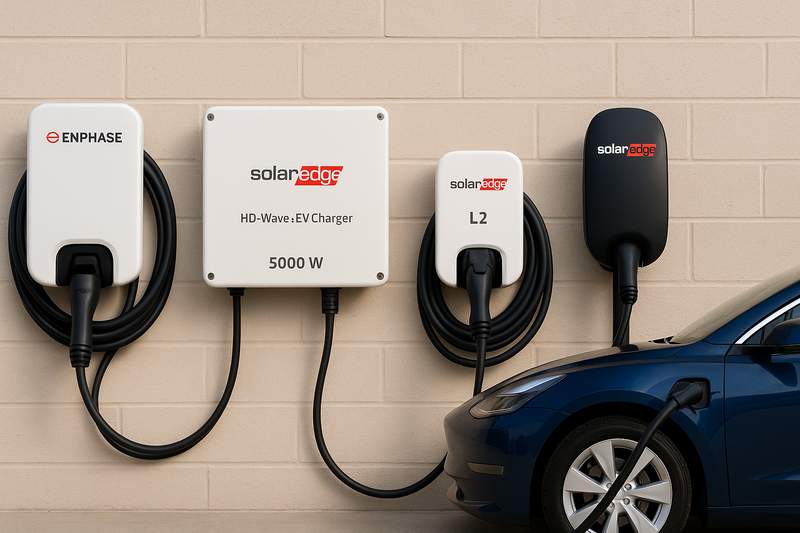
If you’re looking for a rugged, easy-to-use charging solution, the Enphase HCS-40P is a top choice. Designed for durability and convenience, this plug-in Level 2 charger delivers up to 32 amps of power, ensuring faster charge times compared to a standard outlet.
✅ Key Features:
With its robust design and trusted performance, the Enphase HCS-40P is perfect for residential garages, carports, and small businesses.
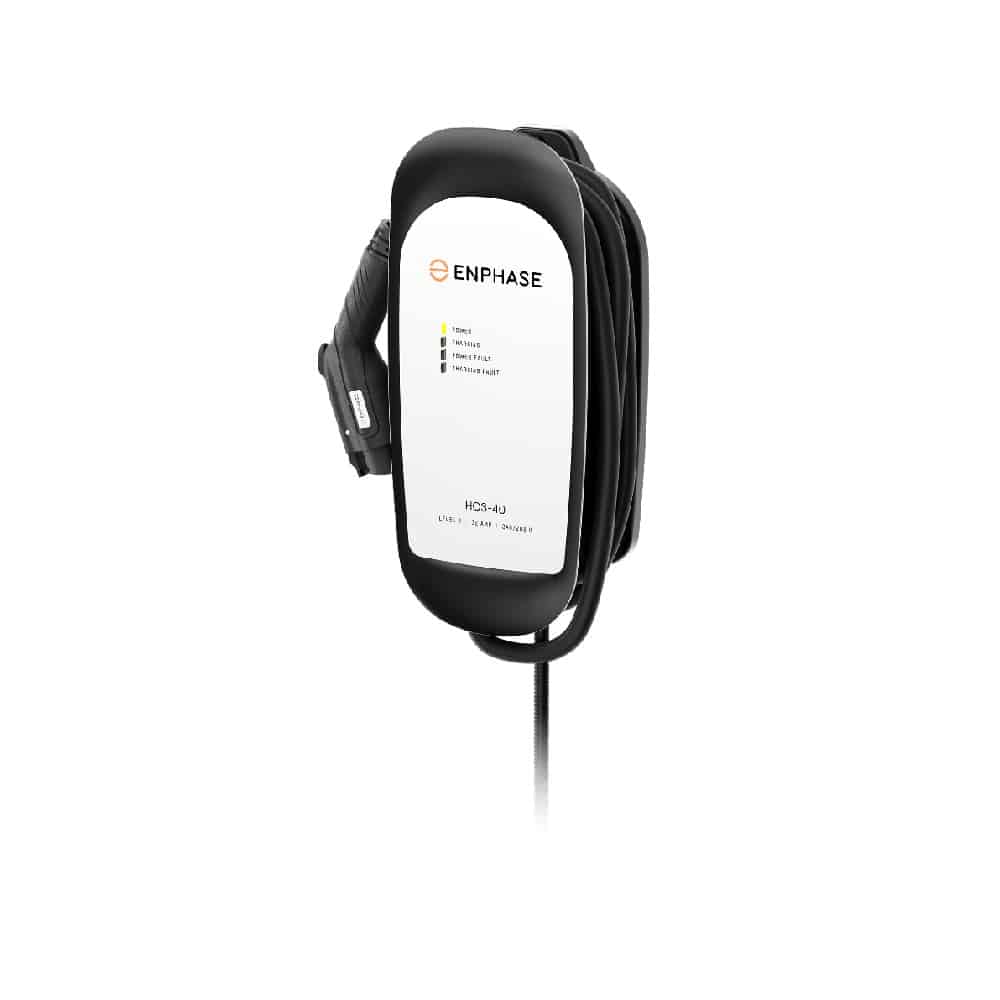
✅ 40A Level 2 plug-in EV charger for fast charging
✅ Compatible with all EVs using a standard J1772 connector
When solar meets smart EV charging, the result is the SolarEdge HD Wave & EV Charger 5000 W. This charger integrates perfectly with your SolarEdge solar inverter, allowing you to charge your EV directly with solar energy when available.
✅ Key Features:
By using excess solar energy for your car, this charger maximizes your energy independence and minimizes reliance on the grid.
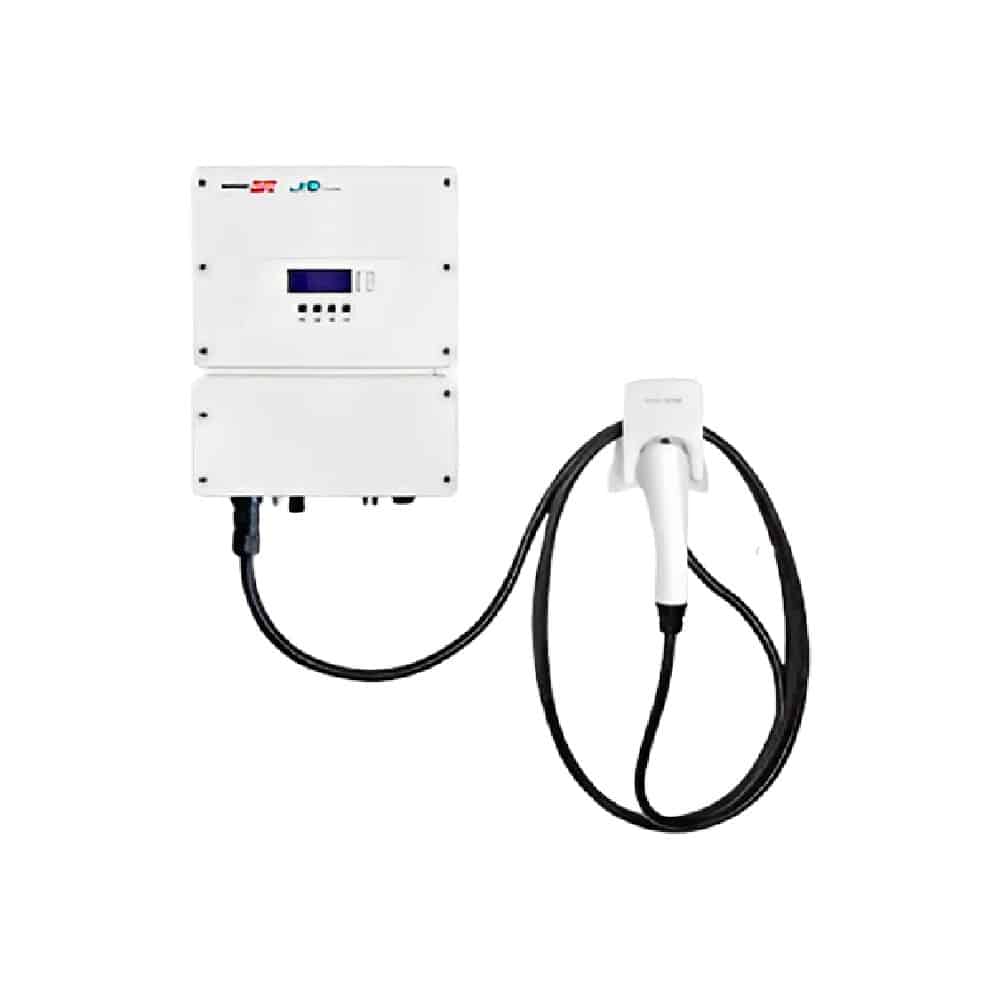
✅ 5kW inverter with integrated Level 2 EV charger
✅ Combines solar and EV charging
✅ Compact, lightweight design
Looking for a flexible Level 2 charger that fits almost every EV model? The SolarEdge HD Wave & EV Charger L2 with a J1772 connector delivers fast, reliable charging and pairs effortlessly with SolarEdge inverter systems.
✅ Key Features:
This smart charger supports advanced energy management, giving you complete control over how and when you charge your EV.
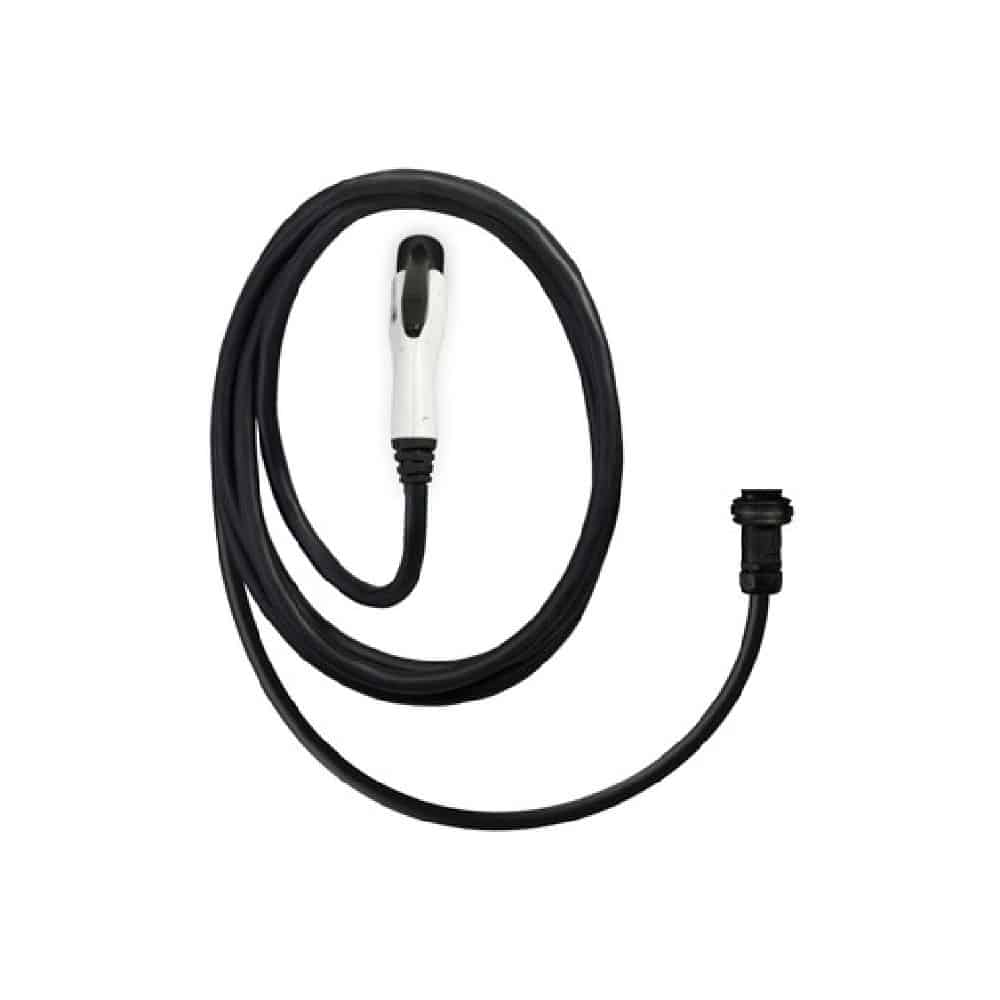
✅ Inverter with integrated Level 2 EV charging capability
✅ J1772 connector for universal EV compatibility
✅ Efficient solar-to-EV charging
Need a powerful EV charger without solar integration? The SolarEdge Smart Stand Alone EV Charger offers outstanding charging performance even for users without a solar system.
✅ Key Features:
Perfect for EV owners who want a reliable, future-proof charging station with or without solar panels.

✅ Level 2 EV charger for fast and efficient charging
✅ Compatible with standard J1772 EV connectors
✅ Smart integration with SolarEdge energy management systems
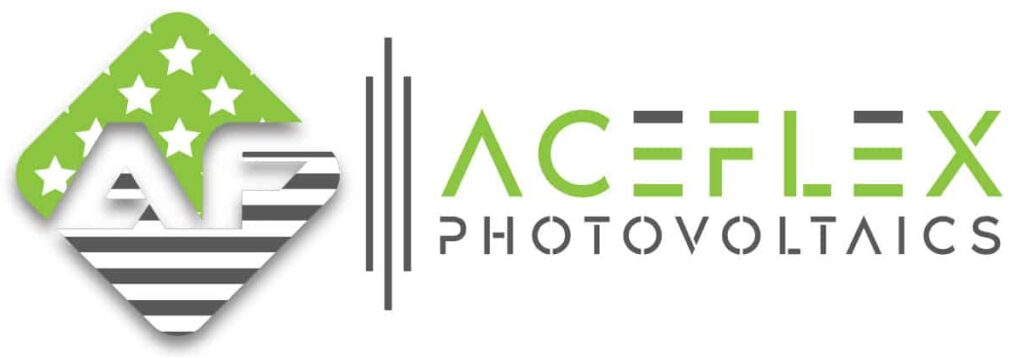
At AceFlex, we don’t just offer EV Charging Station—we provide complete solutions for a smarter, greener future. When you buy from us, you benefit from:
✅ Top-Quality Products: We carefully select EV chargers from trusted brands like Enphase and SolarEdge, known for their innovation, safety, and performance.
✅ Fast U.S. Shipping: With warehouses strategically located in Florida, California, New Jersey, and Texas, we ensure quick, reliable delivery to your doorstep.
✅ Personalized Customer Support: Need help selecting the right charger? Our team offers personal advice tailored to your specific vehicle, home setup, and future energy plans.
✅ One-Stop Energy Solutions: Whether you’re starting with EV charging or expanding to a full solar energy system, we support your entire clean energy journey.
Choosing AceFlex means choosing reliability, expertise, and a partner who genuinely cares about your transition to clean mobility.
Finding the best EV charger is about more than fast charging—it’s about choosing smart, future-ready technology that fits your lifestyle today and tomorrow.
Whether you prefer a simple plug-in model like the Enphase HCS-40P, a solar-integrated charger like the SolarEdge HD Wave, or a standalone smart system, AceFlex has the perfect solution ready for you.
🚗⚡ Don’t wait to upgrade your charging experience.
➡️ Explore our full range of EV Chargers now and power your journey toward a cleaner, more efficient future!

The best EV charger for home use offers fast Level 2 charging, easy installation, and compatibility with your EV model. Options like the Enphase HCS-40P or the SolarEdge HD Wave series deliver excellent performance and reliability.
Absolutely! Level 2 chargers can charge your EV up to five times faster than a regular wall outlet. They also improve energy efficiency and make daily driving much more convenient.
Some EV chargers, like the Enphase HCS-40P, are designed for plug-in installation and can be installed without professional help. However, for hardwired chargers or if upgrades to your electrical panel are needed, hiring a licensed electrician is recommended.
A Level 2 charger typically adds about 25–30 miles of range per hour of charging, depending on your vehicle and the charger’s output. This means most EVs can be fully charged overnight.
You don’t have to. SolarEdge offers both integrated chargers (which work seamlessly with their solar inverters) and stand-alone chargers like the SolarEdge Smart Stand Alone EV Charger, which operate independently without solar panels.
For home charging, a J1772 cable is the best option for most electric vehicles in North America. It offers reliability, weather resistance, and is compatible with nearly all EV brands.
The J1772 standard is the most widely used for Level 2 home charging in the U.S. For DC fast charging, CCS (Combined Charging System) is currently considered the best standard due to its high compatibility and fast speeds.
Reliable models include the Enphase HCS-40P and the SolarEdge Smart Stand Alone EV Charger, both known for their durability, safety certifications, and consistent performance.
ChargePoint, Tesla, and Blink Charging are some of the leading companies. However, manufacturers like SolarEdge and Enphase are highly regarded for residential EV charging solutions.
Yes, you can safely leave your EV charger plugged into the wall outlet and even connected to your car when not charging. Modern chargers are designed with automatic shutoff and safety features.
Consider factors like charging speed, installation type (plug-in or hardwired), weather resistance, cable length, and whether it offers smart features like app control or solar integration.
The J1772 connector is the most popular plug for home Level 2 charging in North America. For fast charging, CCS connectors are the most common.
To prolong battery life, it’s best to keep your EV charged between 20% and 80% for daily use. Full 100% charges are recommended mainly before long trips.
Charging to 80% is ideal for maximizing battery longevity. Some drivers choose 90% if they need a little extra range for their daily commutes, but regular 100% charges should be avoided unless necessary.
Installing a true Level 3 DC fast charger at home is generally not practical. It requires extremely high voltage and specialized equipment. Level 2 chargers are the best and most feasible solution for residential use.
AceFlex is one of the leading online retailers of renewable energy products and offers a wide range of solar products. We work with well-known manufacturers and wholesalers and can offer you cost-effective products in the field of photovoltaics so that you too can contribute to the energy transition.
Looking for an experienced team for planning your photovoltaic system without the hassle of doing it yourself? We are your trusted partner, offering comprehensive nationwide solutions. We provide expert consultation and supply of both photovoltaic systems and storage units tailored to your specific needs.
© 2025 Aceflex All Rights Reserved. Design by Media Pantheon, Inc.